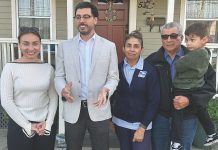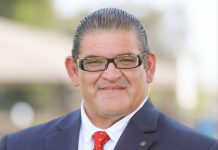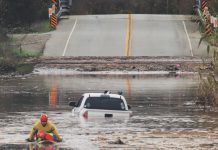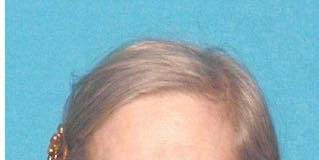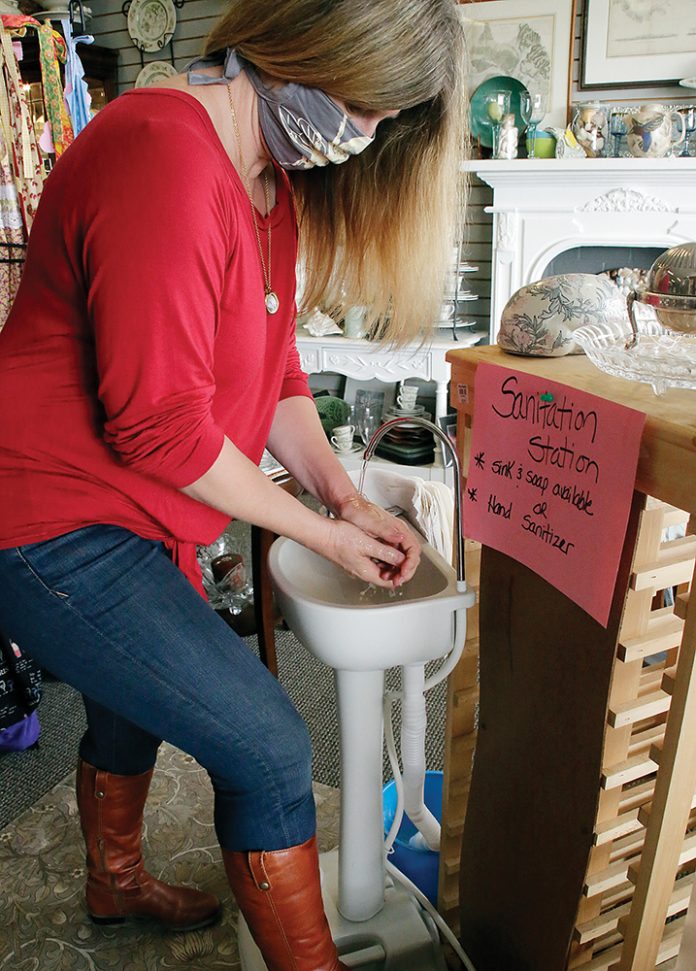
APTOS—In her more than two decades of working with nonprofit organizations, C.J. Runyon spent eight years with Walu International, which among other things helps provide hand-washing stations to rural communities in Papua New Guinea and Nicaragua, where poor sanitation leads to a myriad of health problems.
She has also been a caseworker in prisons, helped with fire cleanup and done community-based development work in Russia, Ukraine, Belize and Africa.
After 25 years of this work, however, the La Selva Beach resident was ready to take a break, and recently began to shut down Walu.
But when Covid-19 began to spread across the world—including in her own community—Runyon realized she could tap her vast experience to help her fellow Santa Cruz County residents.
She reopened Walu and began to reach out to local lawmakers, telling them that providing hand-washing stations at small businesses could help them stay open, keep employees and customers safe and, perhaps more importantly, prevent the damage that comes from entirely closing their doors.
But this proved more challenging than expected.
She says she received a cool reception from the lawmakers, who worried about the cost and punted the responsibility to the business owners.
Runyon says that this lackluster response, along with the disappointing nationwide reaction to the pandemic, has allowed the disease to linger and worsen, even as it wrought financial havoc, she says.
“I’m very concerned about the way our communities have been handling Covid,” she said. “There is a lot of reaction, versus implementing protective, proactive measures.”
And so Runyon is taking Walu’s core tenets to task as she turns to the community. The organization practices the Participatory Method, in which organizers help people identify their own problems, find their own solutions and then implement those solutions.
“We go into communities and work with them to educate and train, and we even take it a step further by meeting with the communities to identify what their biggest needs are,” Runyon said. “Once those needs are identified, we work to equip and empower them to find those long-term solutions.
“We’re not there to do anything for them,” she said. “We are there to empower and equip.”
Two businesses have already installed the hand-washing stations: Caroline’s Thrift in Aptos and Callahan’s Bar in Santa Cruz, Runyon says.
Runyon said she does not want these efforts to stop at installing hand-washing stations.
“Once we’ve reached that solution, then let’s go to the next solution we need to work on,” she said. “Because I think everyone can agree that the solutions we have now are not working, and they have more consequences in the end.”
Worldwide, Walu’s Community improvement efforts are not limited to infrastructural needs such as sanitation. Runyon said one community in Papua New Guinea simply wanted a basketball court to give their youth an activity to keep them out of trouble.
The current goal, she said, is simply to keep small businesses running.
Runyon says she is now looking for teams of volunteers that would help with those efforts. That can be a tall order, she says, in a time when health and financial concerns can be paralyzing.
Still, community education and involvement can be a panacea for these problems, she said.
Volunteers, she says, need only have the desire to effect change in their community. This can mean education, building the stations, helping with social media or website design.
“Literally so many people I talk to say, ‘we’ll wait and see,’ and my response has been, ‘we can’t wait and see,’” she said.
Walu International does not yet have a website.
For information, or to volunteer or make a donation, visit cj****@***il.com.
Editor’s note: In the interest of disclosure, Runyon also works in the advertising department for NewSVMedia, a subsidiary of Metro Newspapers, which owns this newspaper.


